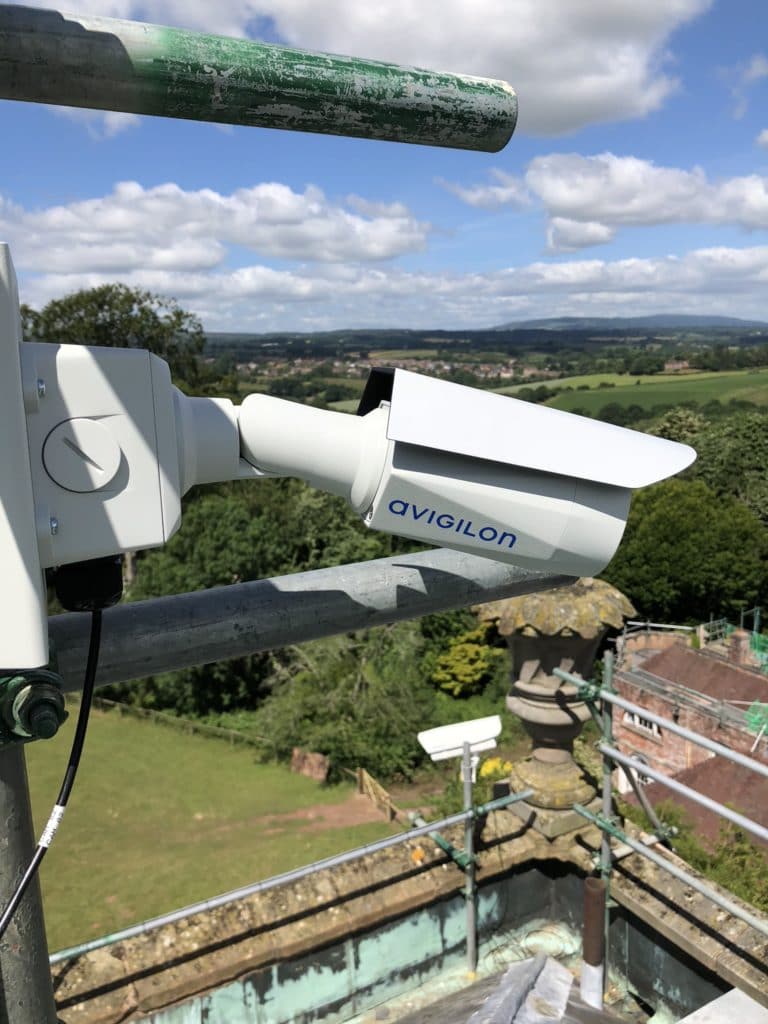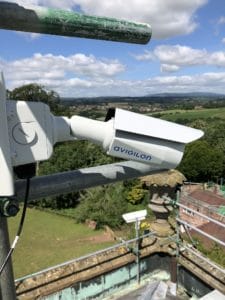Tony Porter, Surveillance Camera Commissioner (SCC), reminded people in February that his post was to come to its natural end in March and published two blogs looking back at his work in the past six years. He has just announced (April 21st) that at the eleventh hour he was asked to continue in post until June and a new person will be appointed when he departs.
Lessons for surveillance during the Coronavirus Outbreak
In his latest blog he examined the lessons that needed to be learnt from the use of surveillance during the Coronavirus (COVID 19) outbreak. The use of surveillance to enforce social distancing and the rules around essential travel have been used in the UK by the police, such as the use of drone footage to identify those in beauty spots like the Peak District by the Derbyshire Police.
The SCC said that the police and local authorities must comply with the 12 guiding principles in the Surveillance Camera Code of Practice. These state that with the deployment of any surveillance camera system they must establish a legitimate aim and a pressing need. This is principle one of the Code and it states that might include the protection of health.
However, the SCC pointed out that his Code is now almost seven years old and it is also nearly two years since the Home Office announced in their Biometrics Strategy that the Code would be reviewed and updated. However, there has so far been no news as to when that updated Code will be issued. Therefore, the SCC pointed out that there were police forces, local authorities and others deploying technology that wasn’t available in 2013 but working to a Code that hadn’t moved with the pace of technology.
State-operated CCTV could threaten civil liberties
In the SCC’s earlier blogs he reminded us that that the role of the SCC was created by the coalition government when it decided that CCTV, when operated by the state, represented a threat to the civil liberties of people and this went beyond those recognised by data protection regulation.
Over this time there has been a huge leap in the technology related to CCTV which has created challenges for law enforcement services, public bodies and private organisations as its use is seen to be encroaching into more aspects of people’s lives.
The SCC, in his blog wrote that these: “New surveillance camera technologies are challenging the delicate balance between privacy and security. I have seen the emergence and increase in the number of surveillance cameras – body worn cameras, drones, ANPR cameras, dashboard cameras, handlebar cameras, and even dog borne cameras watching over us.”
He said that he firmly believes that that the police needed the tools to keep the public safe and he added that, “In the context of cameras, citizens and the state need the confidence in clear laws and regulation which proportionately enables the ethical use of technologies and holds such use to account now, and in the future.”
Surveillance Camera Code of Practice needs updating
The Surveillance Camera Code of Practice was published at the same time as the SCC position was created under the Protection of Freedoms Act 2012. The Code is binding on “relevant authorities” which includes law enforcement authorities, such as the police and local authorities. It is then hoped that other organisations wishing to operate CCTV systems will voluntarily comply with the 12 guiding principles.
The SCC reviewed the Code in 2015 and recommended then that the Principles should be updated and has continued to press the Home Office for this, and he did again in his latest blog. He has also called for an independent review of the laws governing overt state surveillance in the same way that David Anderson Q.C led a review of the Data Retention and Investigatory Powers Act 2014, but this has also not been accepted by government.
SCC recommended single regulator for state surveillance
Another proposal the SCC had recommended was for state surveillance regulation to be placed within a single regulatory body with judicial leadership. This would have moved his function or parts of his function, or more closely aligned his position, to that of the Investigatory Powers Commissioner (IPCO). IPCO provides independent oversight and authorisation of the use of investigatory powers by intelligence agencies, police forces and other public authorities. However, he admitted that this had not been supported by the government either.
However, the SCC said that he enjoyed a healthy and productive relationship with IPCO, the Biometrics Commissioner and the Forensic Science Regulator. He also has a memorandum of understanding with the Information Commissioner and said that their joint work in delivering a Data Protection Impact Assessment for operators of CCTV systems represented an effective reduction in bureaucracy for the stakeholders they oversee. An updated template for DPIAs for CCTV systems was recently published.
Live Facial Recognition under greatest scrutiny
Currently Live Facial Recognition (LFR) is the area of surveillance under greatest scrutiny with the Metropolitan Police introducing LFR within its operations where it believes intelligence means it could have a good chance of capturing dangerous criminals.
However, the SCC said that currently the efficacy of the legal framework around the state use of LFR rested heavily on the judgement in the case of R(Bridges) v Chief Constable of South Wales Police. He said the creativity and potential of LFR by the police whether for intelligence, operational or tactical purposes required each case to be judged on its merits against existing laws on a case by case basis. However, he urged caution on the part of the police to regard the earlier judgement as being a ‘green light’ for the use of this technology in society. He was due to give evidence at the case when it is brought back to the Court of Appeal later in the year.
National Surveillance Camera Strategy notches up achievements
Meanwhile, since 2017 the SCC has been working with experts in the surveillance industry to develop a National Surveillance Camera Strategy. This now has 11 strands which each represent an important strategic theme requiring action. These strands are:
- Standards and Certification
- Horizon Scanning
- Civil Engagement
- Police
- Local Authorities
- Voluntary Adopters
- Critical National Infrastructure
- Installers, Designers and Manufacturers
- Training
- Regulation
- Human rights, data and technology
Writing in his blog the SCC identified some of the successes that the Strategy had achieved. Notably through the standards and certification strand they had successfully launched ‘Secure by Default’ in June 2019, a global first where manufacturers of surveillance camera products had to hit minimum cyber security requirements as their product emerged ‘out of the box’ in order to self-certify and receive the SCC mark.
Through the police and local authorities strands they were delivering a framework service level agreement where a surveillance camera system is to be used in partnership with others, raising standards on how these partnerships work in practice.
Meanwhile, those involved in the voluntary adopters strand had successfully promoted the adoption of the Surveillance Camera Code of Practice amongst business, health and education. Many private sector bodies had voluntarily demonstrated their commitment to public and customer confidence by following the high standards set by the code where they are under no legal compulsion to do so and some had achieved my certification mark.
Also, a survey he conducted of the surveillance camera systems being used by police forces in England and Wales around the nature and extent of statutory compliance highlighted some areas of concern. These in turn led to recommendations being made by the SCC and implemented by all Chief Constables. A similar survey of local authorities is now taking place too.
Strategic approach to surveillance is necessary for continuing trust
The past six years have been productive for the SCC and the controversies surrounding the use of CCTV are very much still relevant as technology develops so watch this space for how the government will continue this work in the future. The SCC ended his latest blog with a further call for a comprehensive review of overt state surveillance as a way of gaining guidance for law enforcement and other organisations beyond 2020.
CCTV Logbook, a new separate venture for Ecl-ips Managing Director, Aaron Kernaghan, uses the 12 Guiding Principles of the Surveillance Camera Code as the basis of its compliance portal giving you confidence you are meeting the highest standards of compliance, which includes the requirements of the GDPR. To sign up for a free trial click here.



